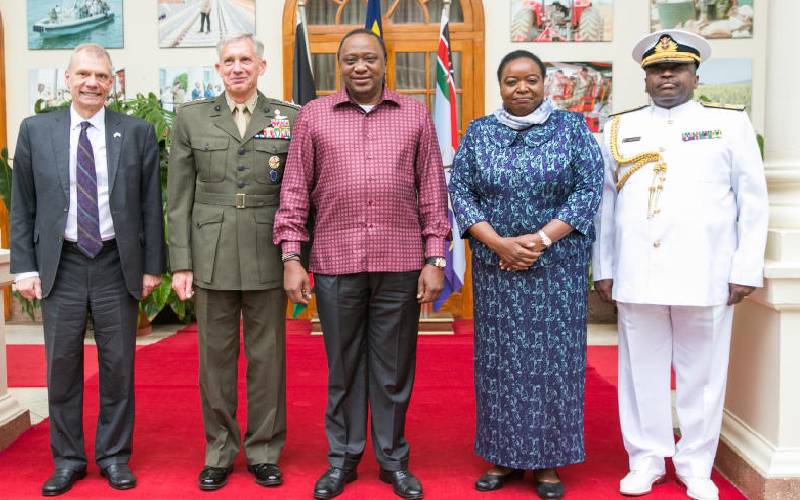×
The Standard e-Paper
Join Thousands Daily

President Uhuru Kenyatta meets fourth Commander of the US Africa Command General Thomas Waldhauser (second left) at State House, Nairobi. Also present was Foreign Affairs CS Amb Monica Juma, Chief of Defence Forces General Samson Mwathethe and outgoing US Ambassador to Kenya Robert Godec.
December last year, President Donald Trump’s national security advisor John Bolton unveiled a new US policy for Africa.